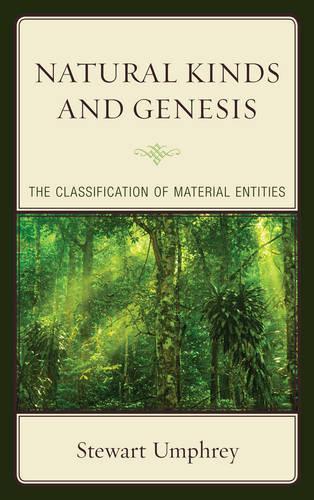
Natural Kinds and Genesis: The Classification of Material Entities
(Hardback)
Publishing Details
Natural Kinds and Genesis: The Classification of Material Entities
By (Author) Stewart Umphrey
Bloomsbury Publishing PLC
Lexington Books
22nd August 2016
United States
Classifications
Professional and Scholarly
Non Fiction
Philosophy
Philosophical traditions and schools of thought
111
Physical Properties
Hardback
186
Width 159mm, Height 237mm, Spine 20mm
445g
Description
In Natural Kinds and Genesis: The Classification of Material Entities, Stewart Umphrey raises and answers two questions: What is it to be a natural kind And are there in fact any natural kinds First, using the everyday understanding of things, he argues that natural kinds may be understood as classes or as types, and that the members or tokens of such kinds are individual continuants. A continuant is essentially a being-in-becoming, a material thing which changes and yet remains the same, in virtue of its nature or essence, as long as it exists. In the primary sense of the term, then, a natural kind is a class whose members closely resemble one another substantially, in virtue of their essences. Alternatively, it is a type whose tokens exemplify it in virtue of their essences. To answer the second question, one must make use of relevant scientific theories as well. Umphrey agrees with scientific essentialists that there are natural kinds, but he argues that most of the chemical, physical, and biological kinds posited in current theories are not natural kinds in the primary sense of the term. The natural-kinds realism he affirms is thus quite restricted: it requires the existence of enduring things which closely resemble one another in virtue of their essences, and such things exist, apparently, only if they have come into being, or emerged, in the course of symmetry-breaking events. Natural Kinds and Genesis will be of interest to philosophers of science and to those interested in the metaphysics of natural kinds and their members.
Author Bio
Stewart Umphrey is tutor emeritus at St. Johns College, Annapolis.
